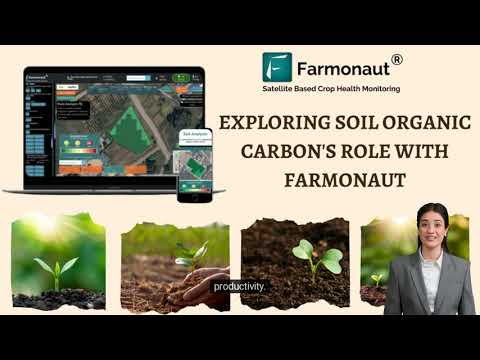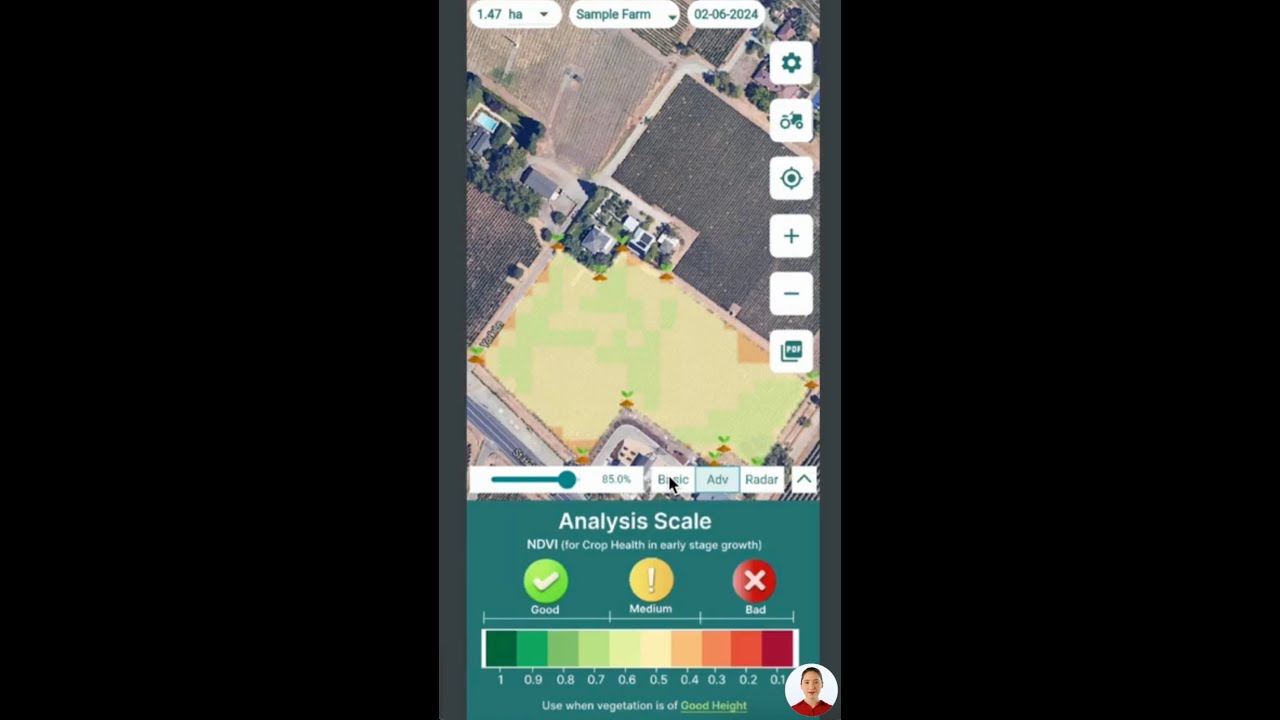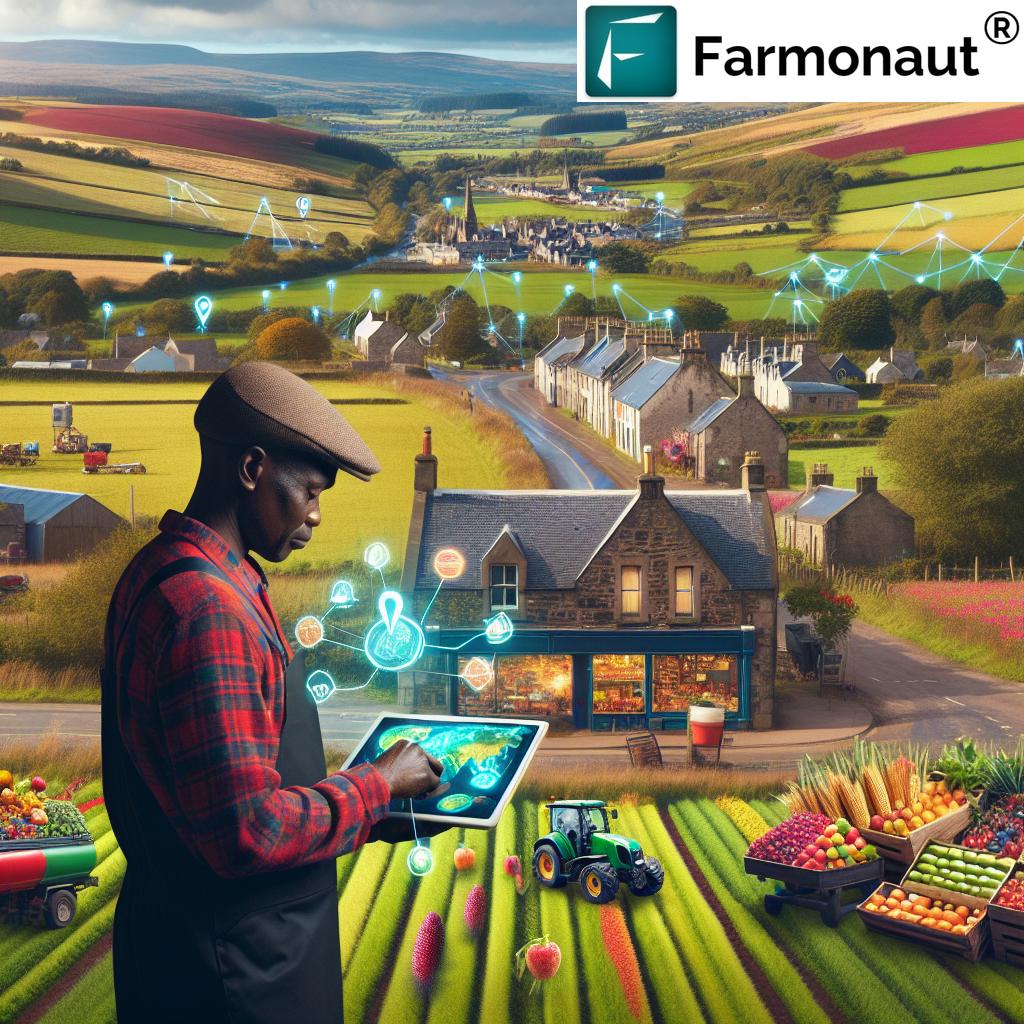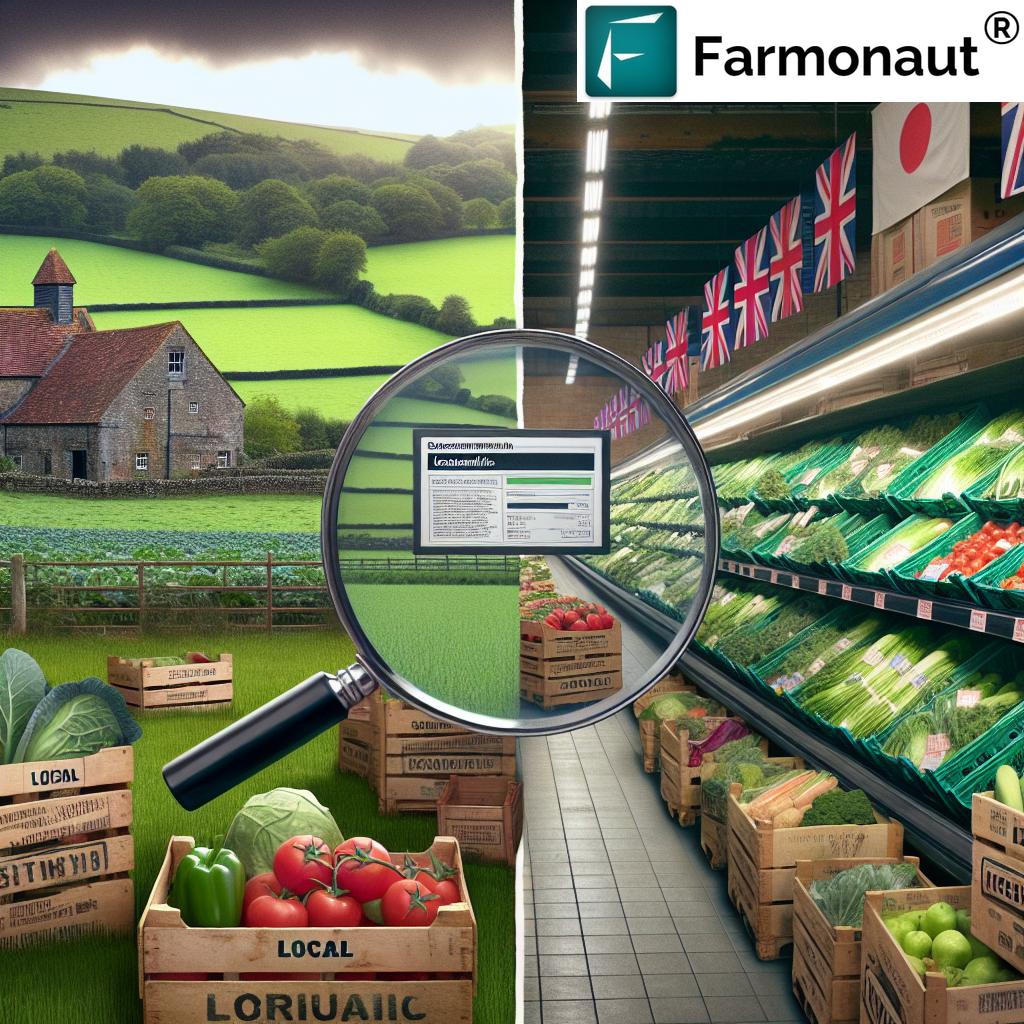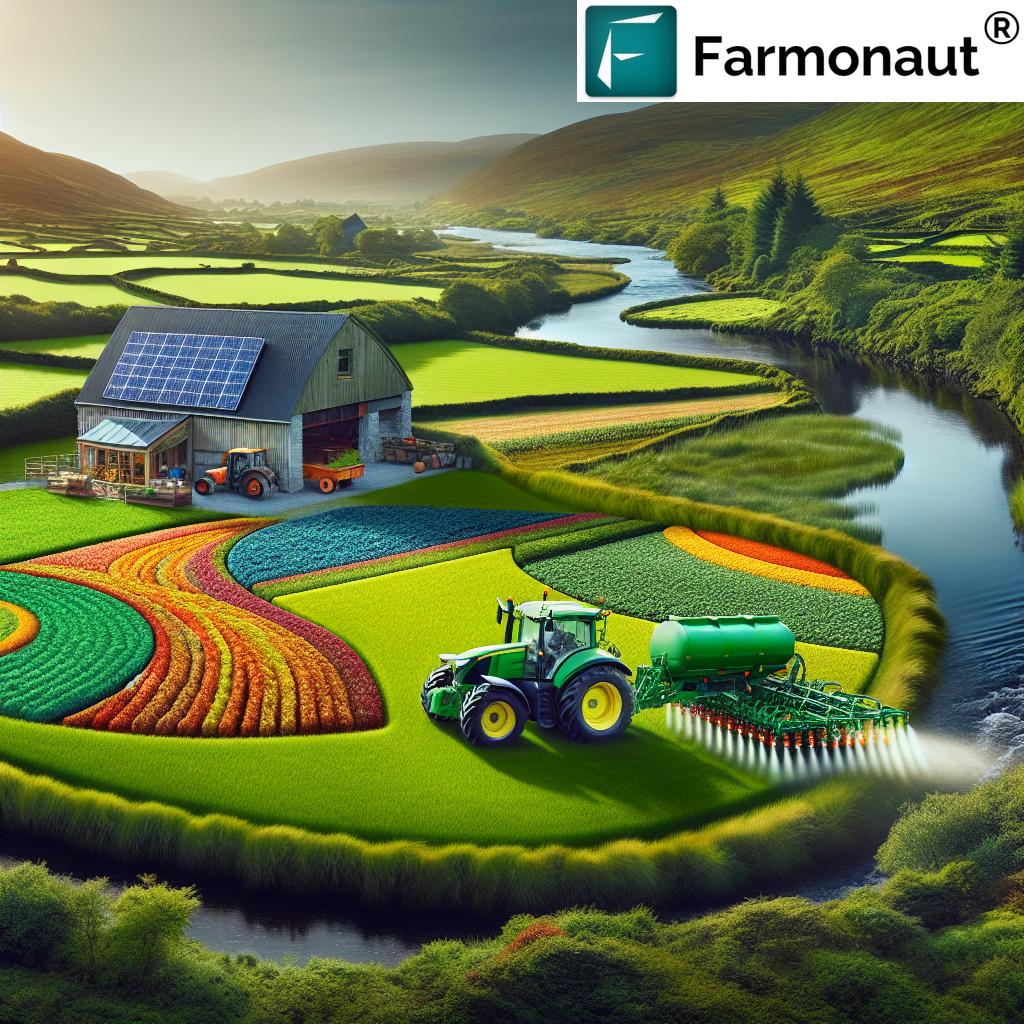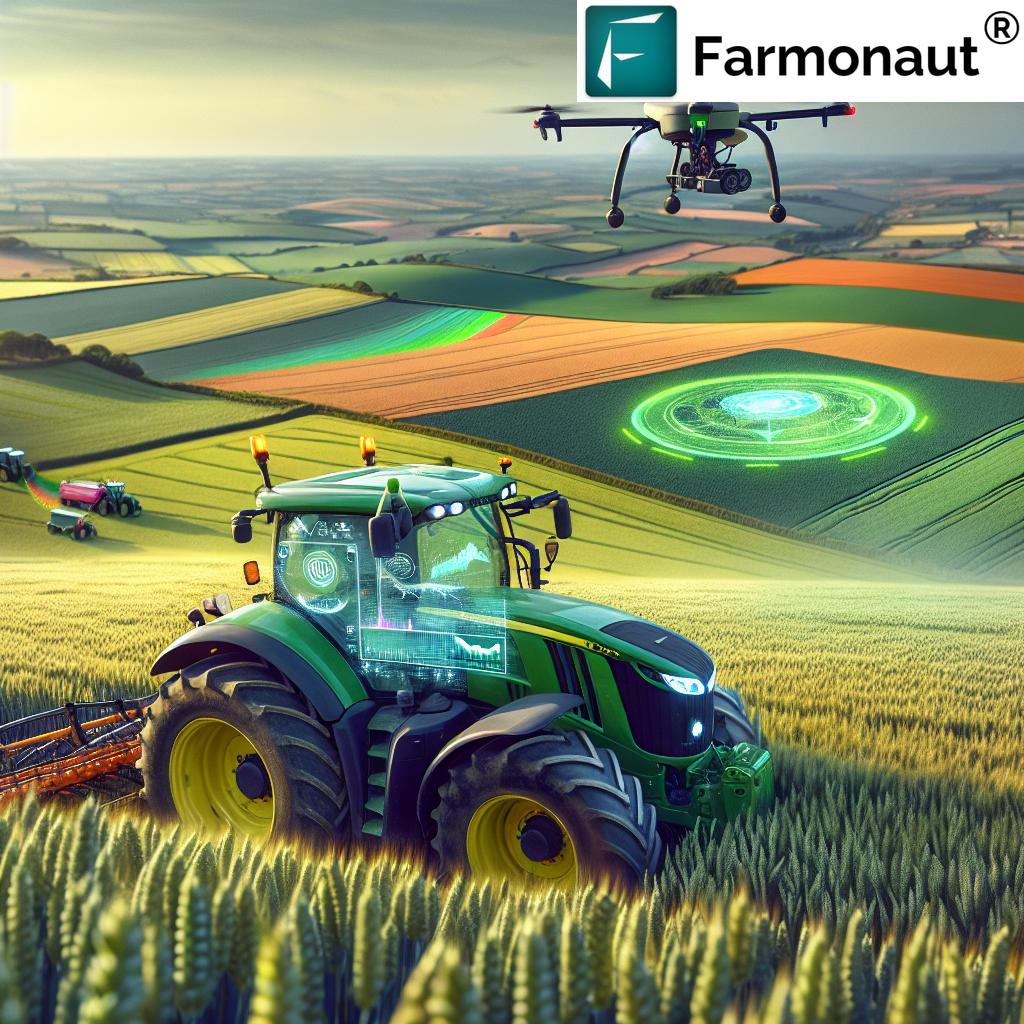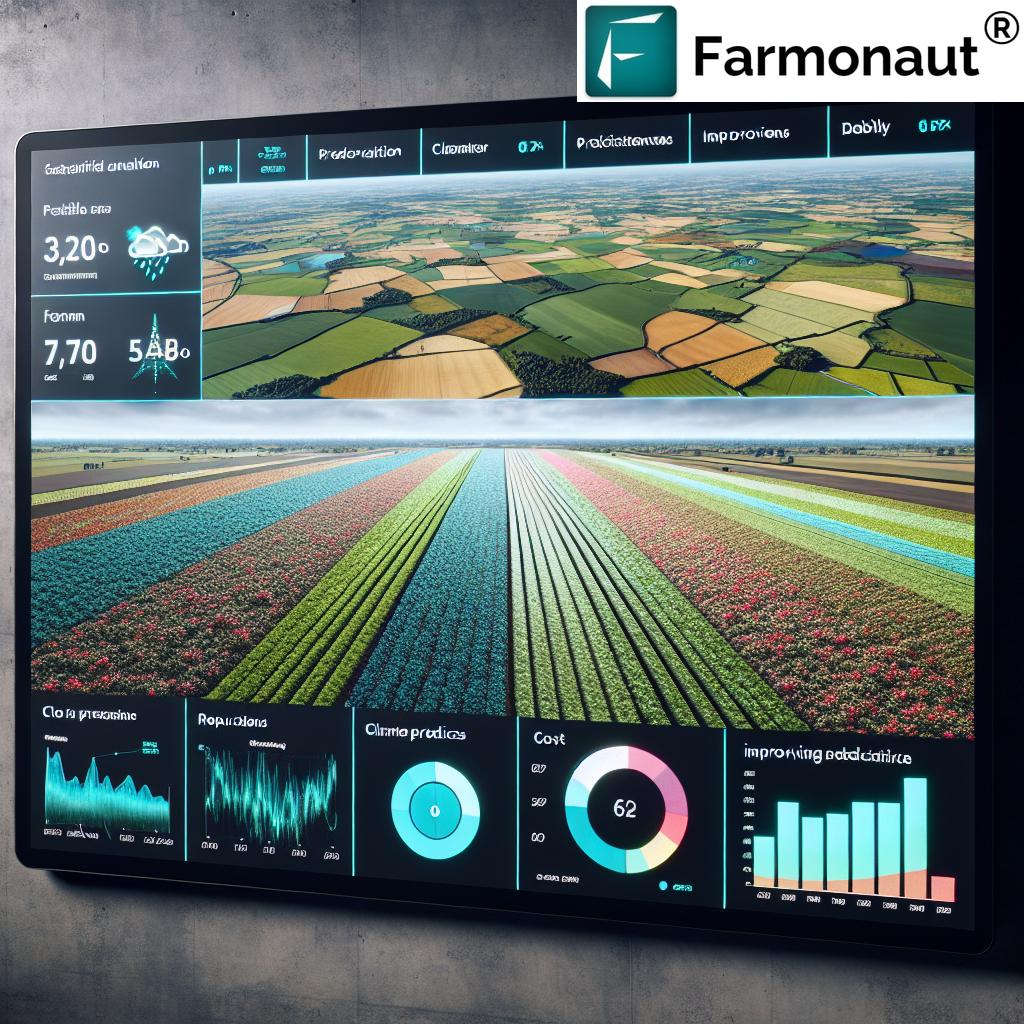Unlocking Green Finance: A Farmer’s Guide to Sustainable Agriculture and Nature Market Opportunities in the UK

“UK agriculture manages 70% of the country’s land while contributing 11% of its greenhouse gas emissions.”
In the ever-evolving landscape of agriculture, UK farmers are at the forefront of a green revolution. As stewards of the land, we find ourselves uniquely positioned to tackle environmental challenges while unlocking new revenue streams through sustainable practices. The emergence of nature market opportunities has opened doors to innovative ways of farming that not only benefit the environment but also bolster our financial resilience.
The Dawn of Green Finance in Agriculture
Sustainable agriculture practices are transforming the farming landscape, offering new opportunities for farmers to diversify revenue streams and embrace environmental stewardship. A groundbreaking toolkit has emerged, empowering farmers to explore nature market opportunities, including carbon credits, biodiversity net gain, and nutrient neutrality. This free resource guides farmers through the complexities of natural capital markets, providing a comprehensive framework for identifying and assessing potential income sources.
With agriculture managing 70% of UK land and contributing 11% of greenhouse gas emissions, we play a crucial role in meeting environmental targets. The toolkit, developed collaboratively and tested across various farm sizes and sectors, offers step-by-step instructions, case studies, and resources to help farmers navigate this transition.
Understanding Nature Market Opportunities
Nature market opportunities represent a paradigm shift in how we view the relationship between farming and the environment. These opportunities allow farmers to monetize sustainable practices that enhance biodiversity, sequester carbon, and improve water quality. Let’s explore some key areas:
- Carbon Credits: By implementing practices that sequester carbon in soil or biomass, farmers can generate carbon credits that can be sold in voluntary or compliance markets.
- Biodiversity Net Gain: This involves creating or enhancing habitats to increase biodiversity, which can be sold as credits to developers needing to offset their environmental impact.
- Nutrient Neutrality: Farmers can implement measures to reduce nutrient runoff, creating credits that can be sold to developers or water companies.
These opportunities not only provide additional income streams but also contribute to the overall health of our ecosystems and help combat climate change.
The Role of Technology in Sustainable Agriculture
In this new era of farming, technology plays a pivotal role in helping us achieve our sustainability goals while maximizing efficiency. Farmonaut, a pioneering agricultural technology company, offers advanced, satellite-based farm management solutions that complement these sustainable practices.
Explore Farmonaut’s innovative solutions:
Farmonaut’s platform provides valuable services such as real-time crop health monitoring, AI-based advisory systems, and resource management tools. These technologies enable farmers to make data-driven decisions that optimize resource use, reduce environmental impact, and increase productivity.
Navigating the Toolkit: A Step-by-Step Guide
The newly developed toolkit serves as a comprehensive guide for farmers looking to explore nature market opportunities. Here’s a breakdown of its key components:
- Assessment of Eligibility: The toolkit helps farmers determine which nature market opportunities are suitable for their specific farm type and location.
- Market Analysis: It provides up-to-date information on various nature markets, including carbon credits, biodiversity net gain, and nutrient neutrality.
- Implementation Guidance: Step-by-step instructions on how to implement sustainable practices that qualify for these markets.
- Financial Planning: Tools to assess the potential financial impact of participating in nature markets, including cost-benefit analyses.
- Regulatory Compliance: Information on relevant regulations and how to ensure compliance while participating in these markets.
By following this toolkit, farmers can make informed decisions about which nature market opportunities to pursue and how to implement them effectively on their farms.
The Importance of Satellite-Based Farm Management
In the context of sustainable agriculture and nature market opportunities, satellite-based farm management tools like those offered by Farmonaut play a crucial role. These technologies provide:
- Precision Agriculture: By utilizing satellite imagery, farmers can optimize resource use, reducing waste and environmental impact.
- Crop Health Monitoring: Real-time data on crop health allows for timely interventions, minimizing the need for chemical inputs.
- Carbon Sequestration Tracking: Satellite data can help monitor and verify carbon sequestration efforts, crucial for participating in carbon credit markets.
“A new toolkit guides farmers through nature market opportunities, potentially diversifying income across various farm sizes and sectors.”
Comparing Nature Market Opportunities
To help farmers make informed decisions, we’ve compiled a comparative table of nature market opportunities available in the UK:
| Opportunity Type | Potential Annual Revenue (£) | Implementation Complexity | Environmental Impact | Required Farm Resources | Market Maturity |
|---|---|---|---|---|---|
| Carbon Credits | 5,000 – 50,000 | Medium | High CO2 reduction | Large land area, soil management expertise | Developing |
| Biodiversity Net Gain | 10,000 – 100,000 | High | Significant biodiversity increase | Diverse habitats, ecological expertise | Emerging |
| Nutrient Neutrality | 3,000 – 30,000 | Medium | Improved water quality | Water management systems, buffer zones | Emerging |
| Agroforestry | 8,000 – 80,000 | High | CO2 reduction, biodiversity increase | Large land area, long-term commitment | Developing |
| Regenerative Agriculture | 7,000 – 70,000 | Medium | Soil health improvement, CO2 reduction | Adapted machinery, soil management skills | Emerging |
This table provides a snapshot of the diverse opportunities available to UK farmers. It’s important to note that potential revenues can vary widely based on factors such as farm size, location, and specific practices implemented.
Implementing Sustainable Practices: A Closer Look
Let’s delve deeper into some of the sustainable agriculture practices that can help farmers tap into nature market opportunities:
- Cover Cropping: Planting cover crops between main crop rotations can improve soil health, reduce erosion, and sequester carbon.
- Reduced Tillage: Minimizing soil disturbance helps maintain soil structure and increases carbon sequestration.
- Precision Nutrient Management: Using technology to apply fertilizers more precisely reduces nutrient runoff and greenhouse gas emissions.
- Habitat Creation: Establishing or enhancing natural habitats on farmland can significantly boost biodiversity.
- Agroforestry: Integrating trees with crops or livestock can provide multiple environmental benefits while diversifying farm income.
Implementing these practices not only opens up nature market opportunities but also improves overall farm resilience and sustainability.
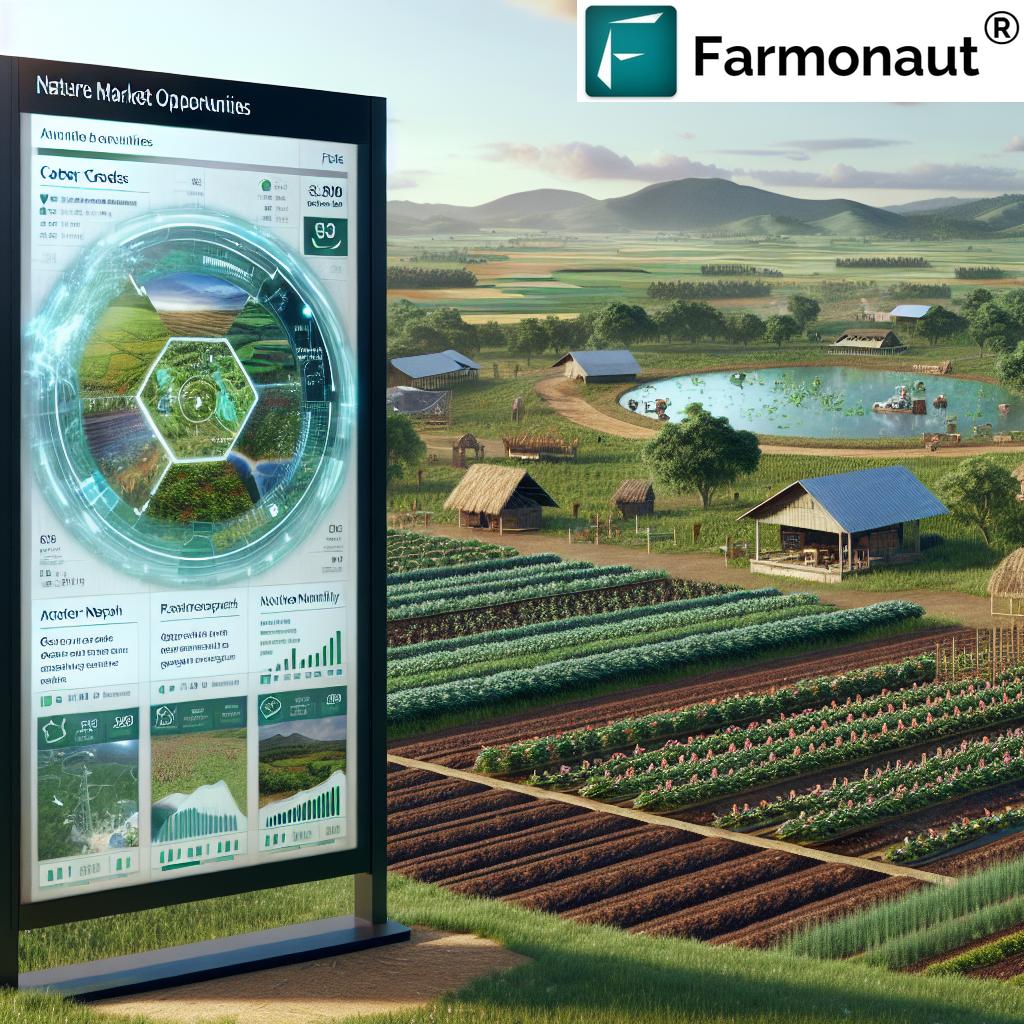
The Role of Technology in Sustainable Agriculture
As we embrace sustainable agriculture practices, technology becomes an invaluable ally. Farmonaut’s advanced solutions offer several benefits:
- Satellite-Based Crop Health Monitoring: Real-time insights into vegetation health, soil moisture levels, and other critical metrics help optimize resource use.
- AI-Driven Advisory: Personalized recommendations based on farm-specific data improve decision-making and efficiency.
- Resource Management Tools: Features like fleet management and carbon footprint tracking support sustainable operations.
By leveraging these technologies, farmers can more effectively implement and monitor sustainable practices, maximizing both environmental and economic benefits.
Overcoming Challenges in Transitioning to Sustainable Agriculture
While the benefits of sustainable agriculture and participating in nature markets are clear, the transition can present challenges. Here are some common hurdles and strategies to overcome them:
- Initial Costs: Implementing new practices or technologies may require upfront investment. Look for grants, subsidies, or green finance options to help offset these costs.
- Knowledge Gap: Sustainable practices may require new skills. Utilize the toolkit, attend workshops, or connect with agricultural advisors to build expertise.
- Market Uncertainty: Some nature markets are still emerging. Stay informed about market developments and consider diversifying across multiple opportunities to mitigate risk.
- Regulatory Complexity: Navigate regulations by staying updated through industry associations and government resources.
Remember, the transition to sustainable agriculture is a journey. Patience and persistence are key as you work towards long-term environmental and economic benefits.
The Future of Sustainable Agriculture in the UK
As we look to the future, the role of sustainable agriculture in the UK’s environmental and economic landscape is set to grow. Here are some trends and developments to watch:
- Increasing Market Maturity: As nature markets develop, we can expect more standardized processes and potentially higher returns for farmers.
- Technological Advancements: Continued innovations in agritech will make sustainable practices more accessible and efficient.
- Policy Support: Government initiatives are likely to further incentivize sustainable agriculture and participation in nature markets.
- Consumer Demand: Growing consumer awareness will drive demand for sustainably produced food, potentially creating premium markets.
By staying informed and adaptable, UK farmers can position themselves at the forefront of this agricultural evolution, benefiting both their businesses and the environment.
Embracing Innovation with Farmonaut
As we navigate the transition to sustainable agriculture, tools like Farmonaut become increasingly valuable. Farmonaut’s platform offers:
- Real-time Crop Monitoring: Satellite-based insights help optimize resource use and track environmental impacts.
- AI-powered Recommendations: Personalized advice supports implementation of sustainable practices.
- Data-driven Decision Making: Comprehensive analytics help farmers make informed choices about nature market participation.
Explore Farmonaut’s API for custom integrations: Farmonaut API
For developers, check out the API documentation: API Developer Docs
Conclusion: A Sustainable Future for UK Agriculture
The transition to sustainable agriculture and participation in nature markets represents a significant opportunity for UK farmers. By embracing these practices, we not only contribute to environmental conservation but also unlock new revenue streams and increase the resilience of our farms.
The toolkit for assessing nature market opportunities, combined with innovative technologies like those offered by Farmonaut, provides us with the resources needed to navigate this transition successfully. As we move forward, let’s embrace these opportunities, leveraging the power of sustainable practices and cutting-edge technology to create a more prosperous and environmentally friendly agricultural sector in the UK.
FAQ Section
Q: What are nature market opportunities in agriculture?
A: Nature market opportunities in agriculture refer to ways farmers can generate income by implementing environmentally beneficial practices. These include carbon credits, biodiversity net gain, and nutrient neutrality schemes.
Q: How can farmers assess which nature market opportunities are right for their farm?
A: Farmers can use the newly developed toolkit, which provides step-by-step guidance on assessing eligibility, analyzing markets, and implementing sustainable practices suitable for their specific farm type and location.
Q: What role does technology play in sustainable agriculture?
A: Technology, such as Farmonaut’s satellite-based farm management solutions, plays a crucial role in implementing and monitoring sustainable practices. It provides real-time data on crop health, optimizes resource use, and supports data-driven decision-making.
Q: Are there financial supports available for transitioning to sustainable agriculture?
A: Yes, there are various forms of support available, including grants, subsidies, and green finance options. The toolkit provides information on accessing these resources.
Q: How can farmers get started with nature market opportunities?
A: Farmers can start by exploring the toolkit, assessing their farm’s potential for different opportunities, and gradually implementing sustainable practices. Utilizing technologies like Farmonaut can also help in this transition.





